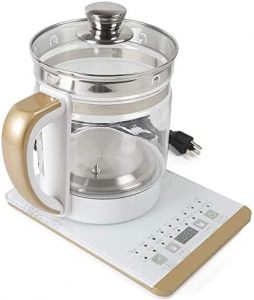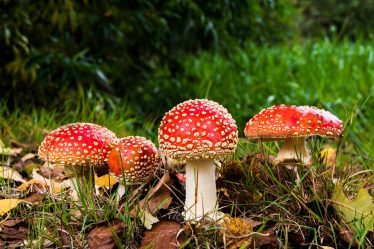
Fermenting, steeping, and soaking are some of the oldest methods of preserving foods. The process is simple: you place some plants in water, wine, or another liquid for a few days to weeks and they release their flavorful compounds while also reducing in volume. An infusion is essentially a tea made from aromatic herbs; it’s like drinking that herb in its natural liquid state. Decocting also involves boiling plants (usually roots) in water with the intention of extracting their properties and reducing their volume by at least half. Lastly, a tincture is an alcoholic extract of herbs that captures their flavor so that when you’re finished, you have a jar full of concentrated plant goodness. Read on to learn more about what each one of these methods does, when to use them (and not use them!) as well as some helpful tips.
What Is an Infusion?
An infusion is a non-fermented extraction method that is great for aromatic herbs and flowers because their flavor doesn’t require any boiling (which can damage the beneficial compounds). Herbal teas are infusions, but so are things like herbal vinegar, herbal oil, and herbal salts. An herbal infusion is a type of herbal tea made by steeping herbs in water, just like you would a regular cup of tea. The main difference is that an herbal infusion uses specific herbs and a specific type of water (i.e. purified or spring water). An herbal infusion should be made with herbs that are either fresh or dried.
What Is a Decoction?
Decoction is a method of extraction in which you simmer herbs in water to draw out their flavor and medicinal properties. The word “decoction” actually refers to both the process as well as the final product. This can be done with roots, barks, seeds, and certain flowers like rose petals, dandelion, and hibiscus. When you are decocting, keep in mind that the water should be just below the boiling point, but not boiling. If you don’t have a thermometer, you can tell if it is just below boiling by looking at bubbles forming at the bottom of your pot. When you decoct a root, you boil the root for about 30 minutes, pour out the liquid, strain it, and then put it back into the pot with fresh water.
What is a Tincture?
A tincture is an alcohol extraction process that is great for herbs that need a strong solvent to break them down, like roots, bark, and flowers. When you are decocting, you are boiling those roots, bark, and flowers to extract their properties, but you are also damaging them and losing some of their beneficial compounds. Tinctures are made with fresh or dried herbs and require you to use a high-proof alcohol like vodka or a grain alcohol like Everclear or moonshine. You steep the herbs in alcohol for a few weeks, strain, and then you have a tincture. When you make a tincture, the alcohol content is very high and it’s important to keep it in a dark, cool place so that it doesn’t evaporate.
How to Make an Infusion, Decoction and Tincture?
When making an infusion, decoction, or tincture, use the freshest herbs you can find. This will ensure the highest concentration of medicinal compounds in your final product. You’ll want to use the best water you can find as well. This can be tap water or spring water. If you are using tap water, let it sit in an open container for at least 24 hours before using it in your infusion/decoction/tincture. This will allow any chlorine in the water to evaporate, which will make your final product taste much better.
Wrapping Up
For thousands of years, people have steeped, decocted, and infused their way to better health. They’ve used herbs like mint, rosemary, and ginger to soothe upset stomachs, ease headaches, and calm nerves. They’ve used fennel, juniper, and thyme to aid digestion and treat coughs, fevers, and cramps. And today, you can use these same methods and make your own herbal remedies! When you make your own herbal infusions, decoctions, and tinctures, you know exactly what’s going into them and can use herbs that are specific to your condition.






